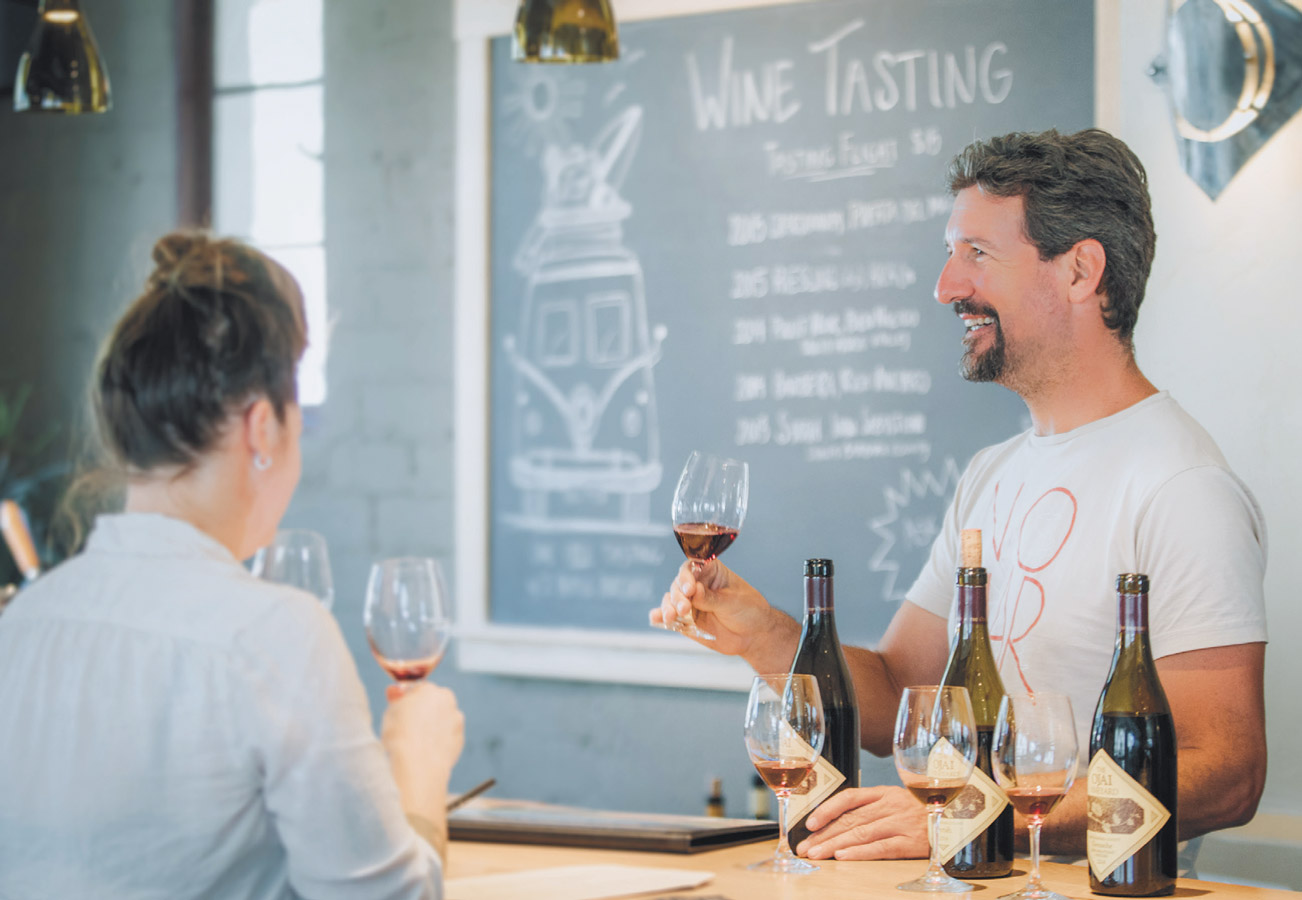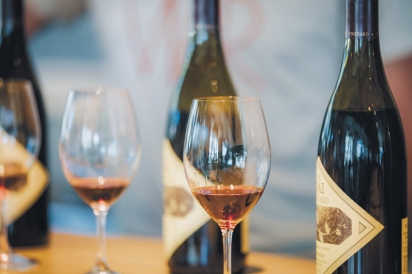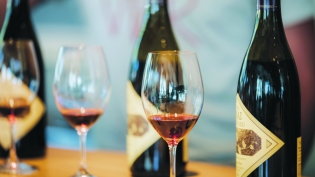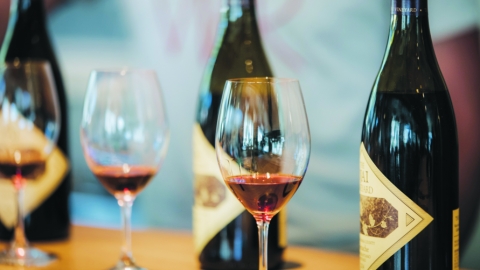Taste Wine Like You Live Your life
Wine tasting rooms can be intimidating, with their adjective- heavy tasting notes, the swirling, the sniffing. And what’s with the spitting? I sat down with Fabien Castel, The Ojai Vineyard’s general manager, who has been with the winery 16 years and formerly was assistant winemaker under the tutelage of founder Adam Tolmach. On a quiet morning at the downtown Ojai tasting room before it opened for the day, Fabien and I talked about wine tasting as an experience, and as a model for living a mindful life.
The conversation has been edited for space and clarity.
It seems like a tasting room is where winemakers and wine drinkers meet on common ground.
The winemaker wants to explain the craft. There is a great divide between an industrial and a craft product. For a small producer, like us, the tasting room is where people can learn the intent of the winemaker, the aesthetic pursuits and the cultural references that influenced this beverage.
So much of the talk in a tasting room is focused on the production of wine—the varietal, climate, soil, fermentation and aging. What does a taster gain by knowing all that?
I prefer that people not be technical. It’s interesting to know the varietal, or that the wine was made in a barrel instead of a tank. Those things are interesting but they just don’t necessarily help. We need to connect with the wine beyond those elements.
And sometimes the technical talk seems competitive.
As an average, men go into that knowledge-based element of competition and the need to prove themselves. Women are a lot more in their body, in touch with smell. I want to bring people to more emotion, where it’s about opening up, about communication, and we have a larger conversation. It’s not just tasting a flavor and inhaling a perfume; you are having a comprehensive experience that is historical, cultural and sociological. Broadening the conversation helps in the wine tasting.
I find that people are often concerned about what they “should” like and what they “should” drink. How do you respond to anyone worried about being correct in their approach to wine?
There is a lot of interest in wine but people feel very self-conscious about their own ability to decide what they like. I think a lot of our work is to dispel those myths. That self-consciousness, that feeling that you are not knowledgeable enough—that is the first impairment to enjoying wine. Everyone is an expert, really.
An expert in what they enjoy—what makes them happy.
Exactly. People know what they like, but they may not have the language to describe the feelings. You can come up with your own descriptors.
I always wonder how wine got to be associated with rules and pretense.
The massive cultural interruption of Prohibition took people away from wine from the 1920s until the ’90s, really. Everybody was connected to wine before Prohibition. When wine came back in the ’60s with the rise of fine dining in the U.S., it was in the guise of highfalutin restaurant experiences with sommeliers who projected this image of high culture. For me, there is no correctness; there is only what you like.
What is your general advice to people who want to go wine tasting?
Be open and curious. Don’t have preconceived ideas. Ask questions. Be present to the reality of the moment and try not to be distracted. Notice what is and be connected.
That’s solid advice for being a good human!
For me it is a form of meditation. It’s the most beautiful part of it.
Are there mistakes tasters should avoid?
Just don’t drink the spit bucket.







